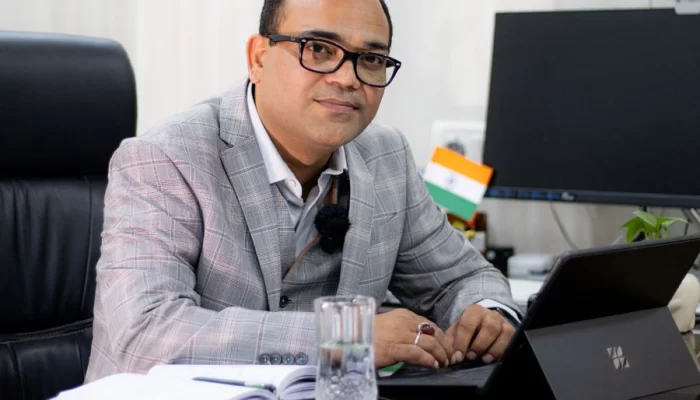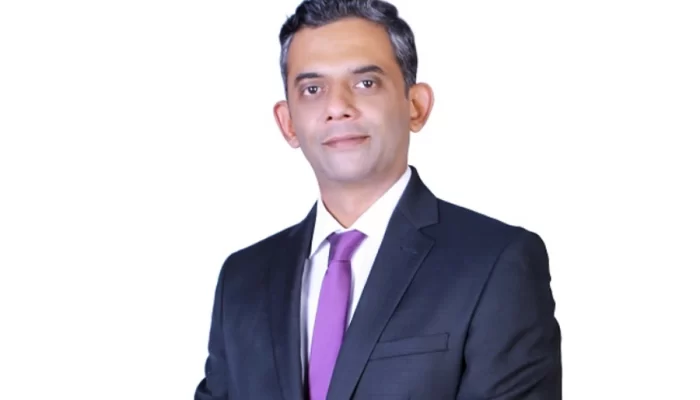Cash, Insurance, UPI, Credit Cards, Bank Transfers, and even Gold; are just some of the ways in which India pays for healthcare. In an illuminating conversation with Chris George- Co-Founder & CEO QubeHealth, a Mumbai-headquartered healthcare payments company, we delve deeper into how India is changing the way it pays for healthcare and how Indian families are managing their family healthcare expenses after the pandemic.

Q – Could you tell us what QubeHealth does and what problem it is trying to solve?
A – Qube is solving the healthcare payments problem, ensuring there is money available at no-cost, and enabling a friction-free, low-cost payment experience at any hospital, clinic or pharmacy in the country.
Through QubePay, you can use the Qube App to pay any health or medical provider in the country, by simply scanning a UPI QR code and getting an instant cashback on every medical bill payment. You also have access to QubeCash – a medical credit line of up to ten lakh rupees, that is available at no-interest and no-fees, through the Qube App, that can instantly pay any hospital, doctor, clinic, or pharmacy.
Qube has built a massive ‘healthcare payments infrastructure’ that integrates, interest-free healthcare financing, insurance, and care providers to expand access to healthcare for Indians, while giving them better control over their healthcare outcomes.
At the moment, Qube is only available through your employer i.e. the Company you work for. Your HR team will subscribe to Qube, as an employee healthcare benefit, usually as an add-on to your group health insurance.
Q – Why now? Why do you believe that this is the time for something like this?
The healthcare payments problem in India is massive. It is fragmented, ambiguous and inadequate.
Let’s take health insurance. It falls short in covering healthcare expenses, paying for less than 40% of the costs, and three out of four Indians being inadequately insured. This results in us having to pay for healthcare from our savings or borrowings – essentially your credit card or your debit card. Now let’s look at the various methods of paying for healthcare. There are many payment methods, including cash, credit cards, debit cards, bank transfers, UPI, insurance, and even GOLD, in some parts of India. But none of them make you feel empowered or in control of your healthcare expenses.
Questions such as “I don’t have enough money; can I get a loan?” and “How much will it cost?” emphasize the individual’s difficulty in controlling financial matters.
Isn’t it ironic that we can get a ‘no-cost EMI washing machine’ but not any healthcare treatment? We use UPI to make everyday payments, but healthcare, which accounts for a large percentage of any Indian family’s household expense, still remain an unrewarding experience?
Q – What has been the Company’s growth so far and how have your customers reacted to your products?
In less than four years, Qube has onboarded close to two hundred thousand paid users, through three hundred companies, and special partnerships with over twelve thousand hospitals, clinics and diagnostic centers. Our Users have loved the fact that all their fund sources – personal money, employer’s money, a no-cost credit line – all of them are now available through one app. They also love that they do not need to depend on their employer, friends or family, if they need money to pay their medical bills – be it emergency expenses or something that is non-emergency, like dental treatments or lasik eye surgery.
Q – What about Insurance? Why do you feel that health insurance does not solve the problem?
Less than thirty percent of Indians have health insurance and the ones that do are almost always, under-insured. Meaning that the health insurance cover that they have will not pay for their family’s healthcare expenses. While it is important to always have health insurance, it is also important to know that it can never pay for a hundred percent of your health and medical bills. Routine medical expenses that are non-emergency in nature – medicines, doctor consultations and more account for a significant portion of an Indian family’s annual income. Such expenses are almost never covered under any health insurance policy. This means that we must always plan for a portion of our savings to pay for this.
Q – The Intersection of Finance and health is seeing a lot of interest globally, why do you think this is the case?
You’re right. The intersection of ‘fin-tech’ with ‘health-tech’ is a growing area of interest for companies around the world. Especially those that have tried to make a dent in the massive healthcare industry. They realize that insurance is only one way of solving the healthcare expenditure problem, and looking at people’s expenditure data can tell you so much more about how they manage their family’s healthcare.
Q – What about data security and privacy concerns?
At QubeHealth, we take data protection and information security very seriously. We are ISO 27001, ISO 27017: 2015, ISO 27018:2018, HIPAA, and SOC-2 Type 1 & 2 compliant. All our User data is anonymised and encrypted. We treat our user data the way I would like my own data to be stored and handled – confidentially.
Q – What about other players in this space? Are there any?
Medical finance is not a new concept. There are many players in the market who partner with certain hospitals to provide financing to the patients who are unable to pay at those hospitals or clinics. We call it ‘desperation financing’, as the individual has exhausted all other options and is now signing up to a high-interest loan OR a no–cost loan for a short period of time, that is masked within the price they pay.
Q – What is your mission? Where do you see Qube five years from now?
Within the next five years, Qube will have empowered a million Indians to pay for the healthcare they need, without increasing their family’s debt burden. Our mission is to change the way we Indians, pay for our healthcare, taking control of our healthcare options and access.
To know more about QubeHealth click https://www.qubehealth.com/
Also read: Fintech Sector Outlook for 2024 – Praveen Paulose, MD of Celusion Technologies








